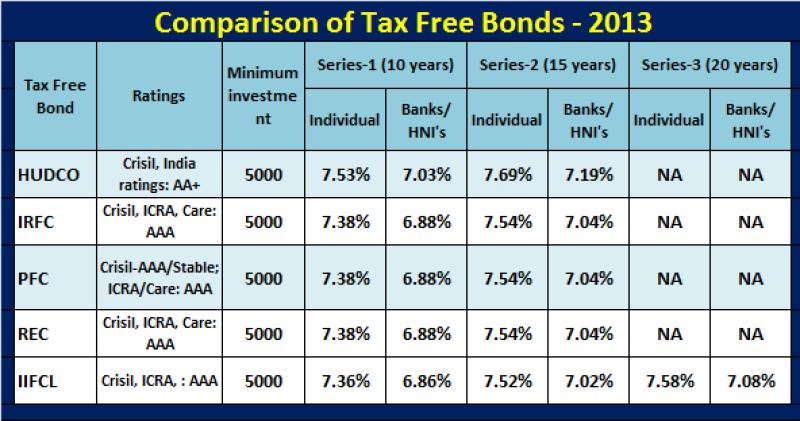Are bonds tax free?
The tax implications of bonds depend on the type of bonds and the investor's individual circumstances. Here are some key considerations regarding the tax treatment of different types of bonds:
Taxable Bonds:
- Most bonds generate interest income, and this interest is typically subject to federal income taxes. The interest income is considered taxable at the federal level, and investors are required to report it on their income tax returns.
Tax-Exempt Bonds:
- Some bonds, known as tax-exempt or municipal bonds, offer interest income that is exempt from federal income taxes. These bonds are issued by state and local governments, and the interest they pay is often free from federal taxes. Additionally, if the investor resides in the state where the bonds are issued, the interest income may be exempt from state and local taxes as well.
Taxable Portion for Certain Investors:
- While interest income from municipal bonds is generally tax-exempt, it's essential to be aware of the Alternative Minimum Tax (AMT). Some tax-exempt interest may be subject to the AMT, impacting the overall tax liability for certain investors.
Capital Gains:
- If an investor sells a bond at a profit (capital gain), the capital gain is typically subject to capital gains tax. The tax rate on capital gains depends on factors such as the investor's income level and the holding period of the bond.
Tax-Advantaged Accounts:
- Bonds held within tax-advantaged accounts, such as Individual Retirement Accounts (IRAs) or 401(k)s, may have different tax implications. Interest income within these accounts is often tax-deferred, meaning taxes are deferred until withdrawals are made.
Corporate Bonds:
- Interest income from corporate bonds is generally taxable at both the federal and state levels. The tax treatment is similar to that of other taxable investments.
Foreign Bonds:
- Interest income from bonds issued by foreign entities is typically subject to federal income taxes. However, some foreign bonds may be exempt from state and local taxes.
It's important for investors to understand the tax implications of their bond investments, and this may vary based on the specific characteristics of the bonds and the investor's financial situation. Consulting with a tax professional or financial advisor is advisable to ensure accurate and personalized guidance based on current tax laws and regulations. Additionally, tax laws are subject to change, so staying informed about any updates is crucial for making informed investment decisions.
Untangling the tax implications: Are all bonds truly tax-free?
No, not all bonds are truly tax-free. While municipal bonds are generally exempt from federal income tax, there are a few exceptions, such as state and local income taxes, original issue discount (OID), and market discount. Other types of bonds, such as corporate bonds and US Treasury bonds, are subject to federal income tax.
Tax Status of Different Types of Bonds
Here is a summary of the tax status of different types of bonds:
| Bond Type | Federal Income Tax Exemption | State and Local Income Tax Exemption |
|---|---|---|
| Municipal bonds | Generally yes (except OID and market discount) | Generally yes (for bonds issued by the investor's state or local government) |
| US Treasury bonds | No | No |
| Corporate bonds | No | No |
OID is the difference between the purchase price of a bond and its face value. When an OID bond matures, the investor must recognize the OID as income, which is taxed as ordinary income.
Market discount occurs when an investor purchases a bond for less than its face value. If the investor sells the bond before maturity, the market discount is recognized as income and is taxed as ordinary income.
Tips for maximizing tax benefits when investing in bonds
Here are a few tips for maximizing tax benefits when investing in bonds:
- Consider your tax bracket: If you are in a high tax bracket, municipal bonds can be a tax-efficient investment option. However, if you are in a low tax bracket, the tax benefits of municipal bonds may be less significant.
- Be aware of OID and market discount: OID and market discount can create tax liability, so it is important to be aware of these factors when investing in bonds.
- Hold your investments for the long term: The longer you hold your investments, the more likely you are to benefit from tax-free growth. This is because OID and market discount are only taxed when you sell the bond.
- Consider tax-advantaged accounts: Investing in bonds through tax-advantaged accounts, such as individual retirement accounts (IRAs) and 401(k) plans, can help to defer or avoid taxes on your investment income.
Conclusion
Not all bonds are truly tax-free, but some types of bonds, such as municipal bonds, can offer tax advantages. By understanding the tax status of different types of bonds and following the tips above, investors can maximize their tax benefits when investing in bonds.
Please note that this is a general overview of the tax implications of investing in bonds. Investors should consult with a tax advisor to get personalized advice based on their individual circumstances.













